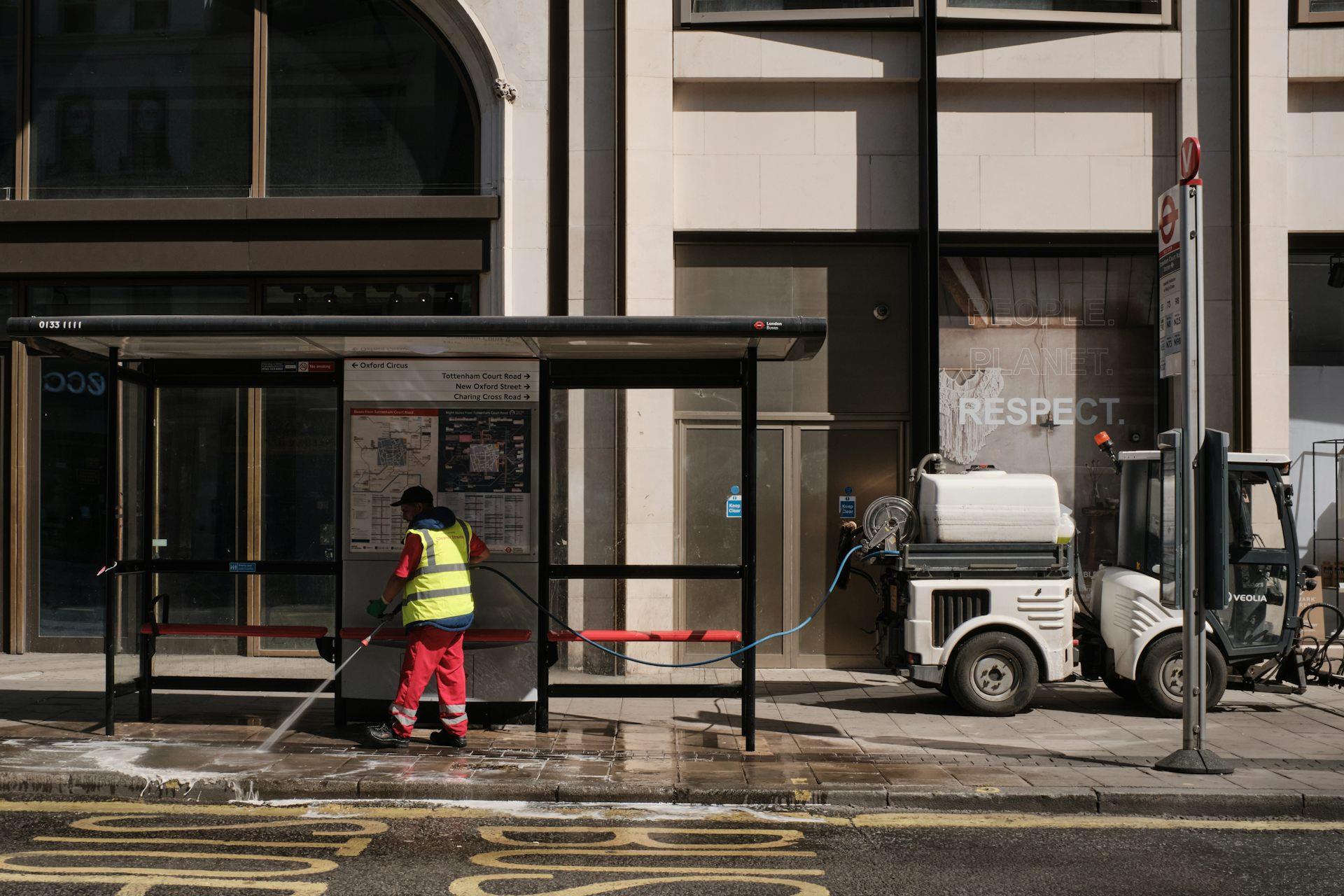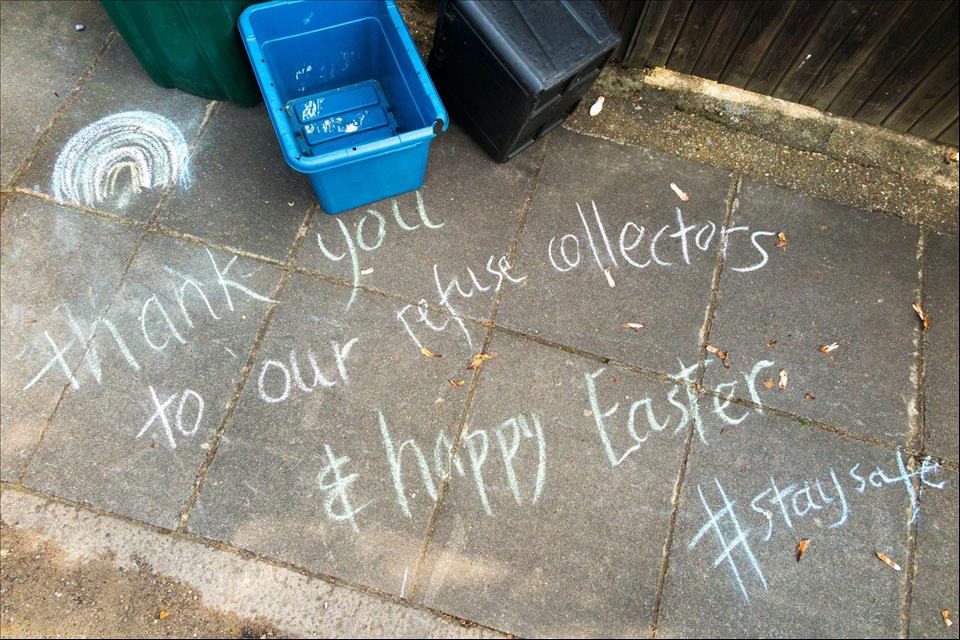
Our Research Shows COVID-19 Made People Appreciate Street Cleaners More But It Also Made Their Lives Harder
This idea ran through discussions on TV and on social media. The Clap for Our Carers movement had people gathering outside on their doorsteps, applauding, ringing bells, chanting and banging on pots and pans to signal their support.
As a result, the collective reliance on various workforces, such as carers, street cleaners, refuse collectors and supermarket workers, to name a few, became increasingly transparent. Public demonstrations of solidarity with these workers gave the initial impression that the status we attach to such work might be revalued: instead of the low status to which these jobs were assigned before, COVID-19 underlined how essential they are.
However, our research on refuse workers shows that this has not translated into a permanent reevaluation of the benefit key workers bring. On the contrary, instead of a collective shift towards real social solidarity, the pandemic has exacerbated socioeconomic divisions.

Cleaners worked hard to keep infection at bay. G Torres/Shutterstock Unexpected visibility
Between the UK's first and the second lockdowns in 2020 and again, in the period after the end of the second lockdown in 2021, we interviewed 41 council workers involved in waste management across four sites in London and south-east England. Two were sites where we had previously conducted ethnographic research among street cleaners and refuse collectors.
We wanted to investigate if, and how, the pandemic affected the way that key workers involved in waste management are recognised. We asked our interviewees to reflect on and compare their experiences of working before, during and after the lockdown. We wondered whether they had noticed any changes in their interactions with the public and how they thought these developments might affect them in the future.
We found that the pandemic gave these workers moments of unexpected visibility and recognition. Not only did this show, to their minds, increased public respect, it also gave them hope that social bonds between workers and the public might be strengthened in the long term. They saw the possibility of a novel, yet seemingly mutual acknowledgement and respect. As Keith, one of our interviewees, put it:
And yet, this experience of coming together was eroded by the unequal consequences of the pandemic for different social groups. Our participants spoke of the differences they saw in people's ability to distance themselves from the unpleasant or potentially dangerous aspects of the pandemic.
Collecting rubbish during lockdown was risky work. Kay Roxby/Alamy
Whereas these workers still had to go to work everyday, other people did not. Our interviewees also noted the stark gap separating those key workers who performed the riskiest jobs (nurses, carers) and those whose jobs involved little risk and could be undertaken from home.
Another interviewee, Kevin, who works as a dustcart driver said:
This chimed with what Nigel, a litter picker, reported:
The pandemic also made broader social divisions more tangible. Our interviewees spoke about those with privilege seeming to lack interest in knowing about the deteriorating living conditions of workers like themselves. This was despite the fact that the activities these workers were doing, like waste collection and street cleaning, were vital for societal functioning. Another litter picker, Bernie, put it plainly:
COVID-19 has led to heightened socioeconomic inequality. Glenn Edwards/Alamy
This illustrates the oxymoron of being“visibly invisible”. During the pandemic, keyworkers' effort became more apparent. At the same time, they sensed little desire from the wider public to consider and challenge the cultural and socioeconomic factors that were negatively affecting their lives.
Our findings chime with research on how nurses, too, experienced the pandemic, with comparable levels of scepticism with regards to positive, long-term transformations. The question is whether, as German sociologist Andreas Reckwitz has argued, we are witnessing an increasing polarisation between different groups and social classes. Our research suggests that the sense that the world can be improved and society become more progressive feels ever more remote.
This has worrying implications for societal solidarity. As inequality grows, the mutual obligations citizens might have towards one another are increasingly being eroded.
All names have been changed to preserve interviewee anonymity.

Legal Disclaimer:
MENAFN provides the
information “as is” without warranty of any kind. We do not accept
any responsibility or liability for the accuracy, content, images,
videos, licenses, completeness, legality, or reliability of the information
contained in this article. If you have any complaints or copyright
issues related to this article, kindly contact the provider above.
Most popular stories
Market Research
- Thinkmarkets Adds Synthetic Indices To Its Product Offering
- Ethereum Startup Agoralend Opens Fresh Fundraise After Oversubscribed $300,000 Round.
- KOR Closes Series B Funding To Accelerate Global Growth
- Wise Wolves Corporation Launches Unified Brand To Power The Next Era Of Cross-Border Finance
- Lombard And Story Partner To Revolutionize Creator Economy Via Bitcoin-Backed Infrastructure
- FBS AI Assistant Helps Traders Skip Market Noise And Focus On Strategy




















Comments
No comment